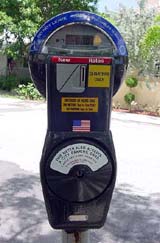 By Nicholas Li
By Nicholas Li
The weakness of conventional measures of cross-country corruption, such as the World Bank index (available here ), is that they rely on subjective perceptions of corruption (business leaders and country experts are asked to rate countries on a numerical scale in terms of corruption) and they cannot isolate the impact of cultural norms and attitudes towards corruption from the legal enforcement environment.
Ted Miguel and Ray Fisman, two academic economists at UC Berkeley and Columbia respectively, have recently written a fascinating article on "Cultures of Corruption" that has received significant media attention. The authors look at parking fines received by UN diplomats from 146 different countries in New York. By examining an objective, quantitative measure of "corrupt" behavior of nationals of different countries in a controlled environment where legal enforcement is essentially nil, the authors try to isolate the effect of cultural norms. [Diplomats receive special diplomatic plates that allow them to avoid paying any fines; they also cannot be towed. This is a simple manifestation of diplomatic immunity. However, their cars are still ticketed by the New York Police Department.]
One of the interesting findings of the paper, which makes the findings plausible despite many potential objections, is that the index is highly (though not perfectly) correlated with the World Bank corruption index. The countries that rate the worst are Kuwait (with 246.2 parking violations per year per diplomat on average), Egypt (139.6), Chad (124.3), Sudan (119.1) and Bulgaria (117.5). Among the least corrupt countries with 0 parking violations are Sweden, Canada, the UK, Norway, and the Netherlands. There are some countries that committed 0 violations that seem like they should manifest more corrupt behavior (Oman, Burkina Faso, Ecuador, Colombia, Central African Republic, and Panama also committed 0 violations).
This highlights the major limitation of the study – there may still be internal sanctions applied to diplomats who commit violations by their own missions, although the authors of the study took pains to investigate this possibility and did not find any media coverage of diplomats sent home for this reason. Of course, if there are internal sanctions this could be taken as further evidence of cultures of corruption since there cannot be any legal consequences. There may be "parking norms" that are distinct from corruption norms that confound these effects. Diplomatic staff may not be representative of national cultures and norms, although they seem suggestive, at least with respect to public officials. Despite these shortcomings, the strong correlation with other measures of corruption suggests that the UN Parking Fines index may soon find a place next to the hallowed Big Mac Index of the Economist Magazine as a useful index for applied research.
Another interesting finding of the study is the relationship between 9/11, international attitudes towards the US, and abuse of the diplomatic immunity. The authors identify a significant drop in parking fines following 9/11, by about 80%, and that the countries with greater Muslim populations experienced greater declines. There also appears to be a strong positive correlation between negative attitudes towards the US (at the country level, derived from the polling data of the Pew Global Attitudes Survey and unpaid parking violations.
It will be interesting to see what kinds of future work develops along these lines, using the cross-cultural melting pots of the world as controlled environments to tease out the effect of individual attitudes and cultures from institutional, legal, and economic environments. Already, the authors have plans to study New York City taxi drivers next. Who knows? The next time you are in some international metropole engaging in some innocuous activity, you might be a datapoint representing your country for some economists study – so behave!
